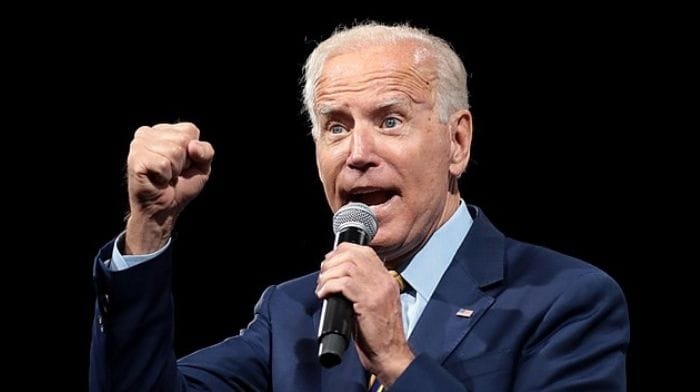
By Myra Adams for RealClearPolitics
President Biden’s affinity for President Franklin D. Roosevelt is well documented. Both men took office during unprecedented economic crises and sought vast historical expansions of government programs and spending to address the turmoil.
During Biden’s first address to a joint session of Congress Wednesday night, he tried to justify tax increases on the wealthy to pay for $4 trillion in proposed initiatives — after the passage of a $1.9 trillion pandemic relief bill — by noting that “85% of Americans received $1,400 rescue checks.”
Naturally, Biden turned to his big-government mentor, saying, “In another era when our democracy was tested, Franklin Roosevelt reminded us: In America, we do our part. We all do our part. That’s all I’m asking.”
RELATED: The Myths Of FDR & LBJ Guide Biden’s Presidency
Describing the speech’s tenor, Axios’ Jonathan Swan wrote, “I’m told Biden deliberately echoed the empathetic, quietly impassioned tone of FDR’s Fireside Chats on the radio from 1933-44.”
Continuing that theme, the president validates the new spending as “a once-in-a-generation investment in America itself and the largest jobs plan since World War II.”
Herein lies the problem: Biden is attempting to become the modern incarnation of FDR without the equivalent of World War II. According to the U.S. Debt Clock, the national debt is $28.2 trillion, but the gross domestic product is only $21.6 trillion.
Thus, the debt-to-GDP ratio is 130%. According to The Balance financial site, that number surpasses the two back-to-back ratio records set during, and just after, the war — 114% in 1945 and 118% in 1946.
During his speech, he patriotically talked up competing with China to “win the 21st century” as another justification for record spending and taxing. But, while briefly touching on foreign policy, he never mentioned defending Taiwan.
Nonetheless, Biden said that President Xi Jinping “is deadly earnest” on China becoming “the most significant, consequential nation in the world. He and other autocrats think that democracy can’t compete in the 21st century.”
As Biden spelled out, the U.S. needs domestic transformation, unification, and modernization to remain the world’s leader, but he should not ignore war clouds gathering over Taiwan.
Defense leaders believe it is not “if” but “when” China will test the new president in what could begin a military showdown to “win the 21st century.” Such a confrontation would cost untold trillions at the most inopportune time. Worse, simulated war games show the U.S. would not be victorious.
RELATED: AOC Says Biden’s $2 Trillion On Infrastructure Is Not Enough: ‘We Can Do $10 Trillion’
Chinese leaders watching Biden’s speech had to be delighted that he did not voice support for Taiwan. Is Biden sending a signal of weakness, increasing a threat comparable to what FDR faced in 1939 when Hitler invaded Poland?
Here is the situation as seen by Adm. John Aquilino, nominated to lead the U.S. Indo-Pacific Command while testifying before the Senate Armed Services Committee in late March.
Asked when he thought China would militarily overtake Taiwan, he answered, “My opinion is this problem is much closer to us than most think.” Later he added, “Washington’s credibility as an ally to places like Japan and the Philippines is at stake if the island were to fall to Beijing.”
Even more perilous, Aquilino testified that a “Chinese military presence on Taiwan would give Beijing sway over two-thirds of global trade, which passes through the sea lanes near the island.”
How would a confrontation with China impact U.S. spending? For comparison, let’s look at the debt increases FDR incurred after the start of World War II.
At that time, 1939, the U.S. national debt was $40 billion, rising to $72 billion in 1942. In 1943, at the heart of the war, debt was $137 billion. Then those debt records were set in 1945 with $259 billion and $269 billion in 1946.
If China seizes Taiwan, expect the following three questions to loom large.
First, how can the U.S. afford a war over Taiwan? At current Debt Clock projections, by 2025, our national debt will be $50 trillion with GDP at $26 trillion — a debt-to-GDP ratio of 192%. The extent to which added military spending would heighten that imbalance is mind-boggling to fathom.
RELATED: Is Biden’s Team Rooting for Red China?
Second, for the reasons stated by Adm. Aquilino, can the U.S. afford not to defend Taiwan?
Third, do the American people have the stomach for such a war? As we wind down two decades fighting in Afghanistan, you can practically hear the question on Main Street and in Washington: “Is this another quagmire halfway around the world?”
There are no good solutions. The U.S. is a racially, politically polarized nation drowning in debt, and some say that our best days are in the rear-view mirror.
Meanwhile, China — now with the world’s largest navy — is itching to test Biden. If you want a reality check, read this threat assessment document from the director of national intelligence.
Then consider this: If China attacks Taiwan and the U.S. does not defend our ally, China may be emboldened and, like Hitler, continue conquering until stopped.
While emulating the New Deal FDR, Biden could also become the wartime FDR … with real fireside chats after our critical communications infrastructure is hacked.
Syndicated with permission from RealClearWire.
